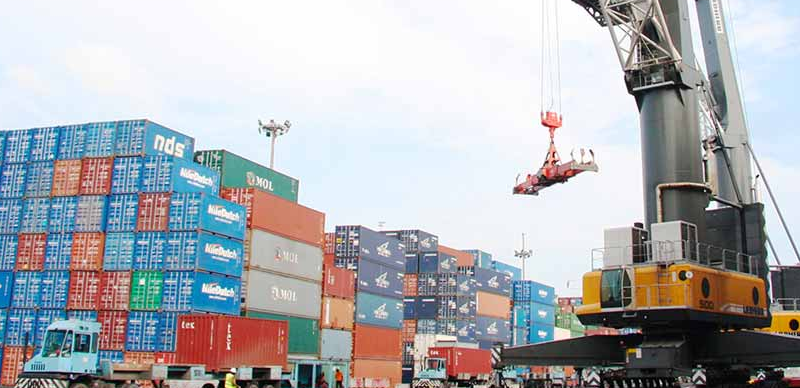Nigerian shippers have blamed the high cost of clearing and the fluctuating exchange rate for cargo clearance for the rising inventory among manufacturers.
The shippers spoke on Wednesday in Lagos at the maiden press conference of the National Shippers Association of Nigeria.
Shippers are exporters, importers, manufacturers and owners of cargoes being exported or imported into the country.
Speaking during the event, the President-General of NSAN, Innocent Akuvue, lamented the protracted exchange rate crisis and the attendant effect had affected members of the association and manufacturers.
He also blamed the inconsistent policies on the part of the government, noting that some policies had been implemented by the government without due consultation of the stakeholders.
“There is also a complex nature and inconsistencies in the process of clearing plus the rising cost of doing business at the ports. Our roads and other infrastructure including logistics of goods from the ports have been a challenge,” Akuvue said. Related News Maritime operators groan as FG adjusts cargo exchange rate upward Importers diverting cargoes to Lome port, say operators Ogun cargo airport will boost nation’s economy – FG
Also, the Secretary-General of NSAN, Ijeoma Ezeasor, who is also a Director at Cutix Plc, a cable manufacturing company, lamented that manufacturers’ warehouses were filled as Nigerians could not afford to buy their products.
“Some of the goods we ordered for and paid for since the era of COVID-19, which were disrupted then, are still coming back now and we are faced with the challenges of clearing them with the new rate.”
Earlier, a chieftain of the association, Jonathan Nicol, said that the purpose of creating the Presidential Enabling Business Environment Council by the past administration had been defeated.
Former President Muhammad Buhari had in July 2016 set up PEBEC to remove bureaucratic constraints to doing business in Nigeria and make the country a progressively easier place to start and grow a business.
The council was an inter-governmental and inter-ministerial body chaired by the then Vice President Yemi Osinbajo and comprised 10 ministers, the Head of Civil Service of the Federation, the Governor of the Central Bank of Nigeria, representatives from Lagos and Kano State governments, the National Assembly and the private sector.
